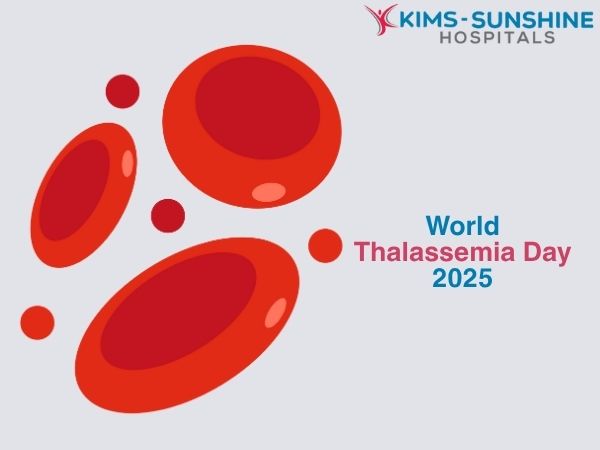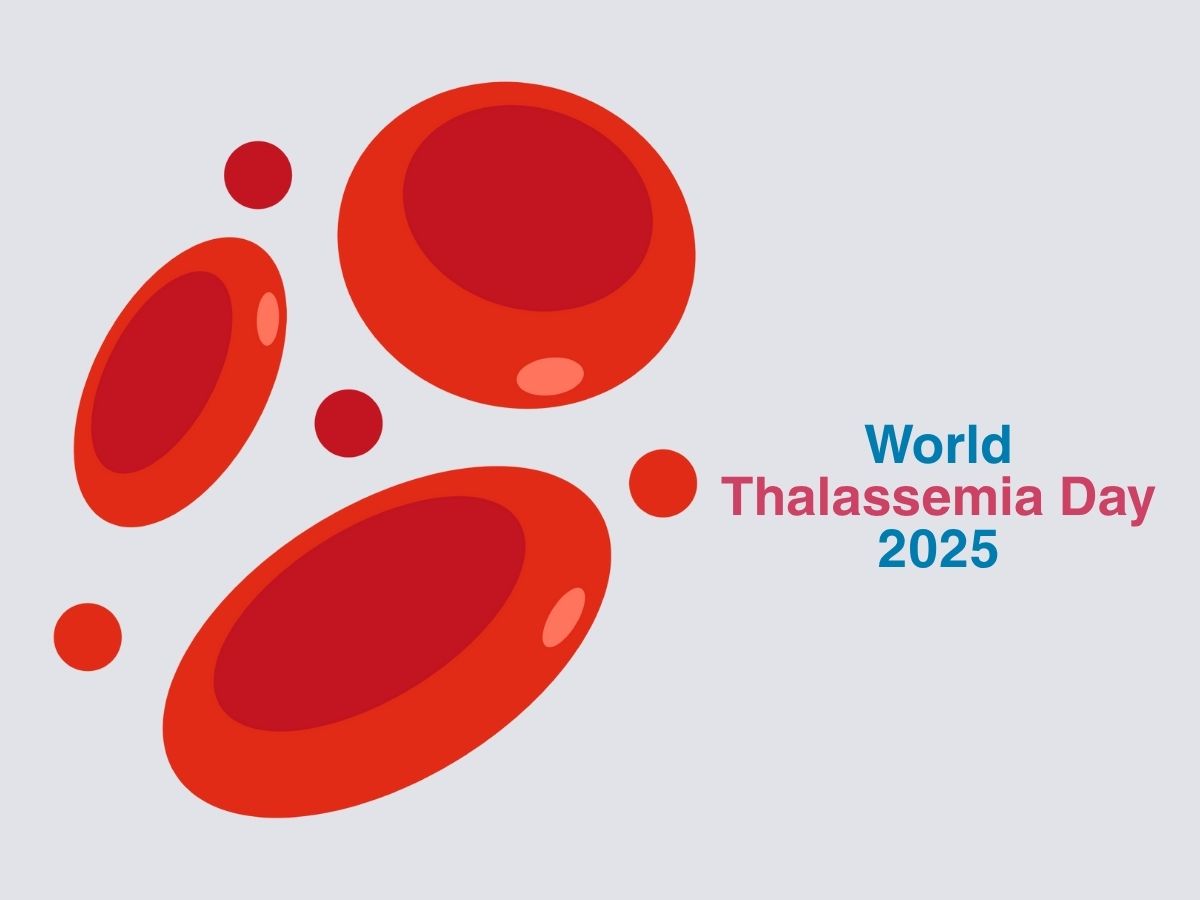
World Thalassemia Day 2025
 Thalassemia is a genetic condition that is caused due to faulty genes that make wrong haemoglobin protein – the error hence causes an abnormal type of haemoglobin to be formed in the wrong numbers. The body has an inborn mechanism to get rid of poorly functioning or formed cells and since these red blood cells have a faulty protein in them- these RBCs are destroyed in very large numbers. This can lead to severe and chronic anemia. World Thalassemia Day holds a special significance for India, as we have the largest number of thalassemia major cases in the world. Almost 3-4% of the population are carriers for beta-thalassemia genes, with some states reporting many more cases than others.
Thalassemia is a genetic condition that is caused due to faulty genes that make wrong haemoglobin protein – the error hence causes an abnormal type of haemoglobin to be formed in the wrong numbers. The body has an inborn mechanism to get rid of poorly functioning or formed cells and since these red blood cells have a faulty protein in them- these RBCs are destroyed in very large numbers. This can lead to severe and chronic anemia. World Thalassemia Day holds a special significance for India, as we have the largest number of thalassemia major cases in the world. Almost 3-4% of the population are carriers for beta-thalassemia genes, with some states reporting many more cases than others.
Importance of Celebrating World Thalassemia Day-
World Thalassemia Day is celebrated on 8 May 2025. It affects millions of individuals worldwide and is way more prevalent in countries which have to deal with malaria on a large scale. Both men and women get affected equally. Thalassemia can cause issues like fatigue, exhaustion and anemia and some people may be asymptomatic carriers for all of their lives. It is not a well known condition and hence general awareness levels in the population remain abysmally low.
There are 2 main types of thalassemia- alpha and beta thalassemia respectively. We mentioned that faulty genes lead to wrong proteins being made- those genes are the alpha globin and beta globin genes in the RBC. When there is some problem with the alpha globin gene, it leads to deficiency of the protein and causes alpha thalassemia. The same notion applies for beta thalassemia too- but it is the beta globin gene which is faulty in this case. Both have 2 subtypes under them- thalassemia major and minor respectively. Thalassemia minor simply means they are carriers while major means they get affected too and have to deal with a range of symptoms.
History of World Thalassemia Day-
World Thalassemia Day was first celebrated on May 8, 1994 by Panos Englezos – who founded the Thalassemia International Federation to commemorate his son’s death from the same condition. This day aims to help promote awareness about the condition, to make people understand what the condition is all about and how to get diagnosed and treated and to advocate for more research and investment into better treatment approaches in the long run.
Theme For This Year-
Like many other medical awareness days, World Thalassemia Day 2025 has a specific theme- “Together for Thalassemia- Uniting Communities, Prioritising Patients” and this emphasises the all too noticeable gap between treating a patient versus treating just their symptoms. Thalassemia is a chronic condition for most individuals and hence symptom management is a major priority obviously, but doing just that will not help them deal with their mental insecurities and fatigue. This theme hence calls to action governments and health policy making bodies to keep the patients at the forefront of their decision making.
Conclusion
India has a very large number of both thalassemia major and minor cases- which means there are a lot of carriers too, who do not know that they may pass on the faulty gene to their children or the next generation. Symptoms of thalassemia include feeling short of breath, getting tired very easily, looking very pale or even jaundiced and for children- it affects their growth severely. Diagnosis is usually easily done with simple blood tests- complete blood counts, electrophoresis to detect the abnormal Hb protein and genetic testing in some cases- to see where the mutation has occurred. Treatment is pretty simple too- consisting of regular blood transfusions and taking folate supplements to help RBCs mature. A common side effect is large amounts of iron accumulating in the body due to the transfusion, for which chelation therapy can be done. Bone marrow transplants have been helpful in the long term- especially when done in very young children. Now that you know what thalassemia is, it is time you pledge to help those in need and increase awareness of this condition, so that people get diagnosed correctly and receive treatment at the right time.






